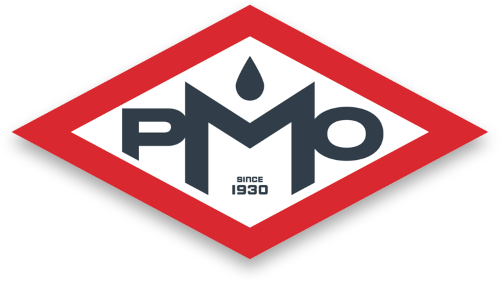Types of Lubricants: Oils, Greases, and Fluids
Lubricants reduce friction between contacting parts, offer heat regulation, power transmission, dust sealing, and prevent corrosion. They come mainly in liquid or semi-solid form, though other forms are also possible. Here are the main types of lubricants.
Oils
Oils function as lubricants because they reduce friction and wear between two surfaces in contact. The primary purpose of a lubricant is to create a protective film between moving parts, minimizing direct metal-to-metal contact. By doing so, oils facilitate smooth and efficient motion, ensuring longevity and optimal performance.
One crucial aspect of using oils as lubricants is their viscosity, which refers to their resistance to flow. Viscosity influences the thickness of the oil film formed between the surfaces. High-viscosity oils have a thick consistency and provide better protection under heavy loads and high temperatures. They are suitable for applications involving slow-moving parts or high loads, as they maintain a more substantial film barrier.
On the other hand, low-viscosity oils have a thinner consistency, offering enhanced flow properties. These oils are ideal for applications with high speeds or low temperatures, as they can quickly form a lubricating film even under challenging conditions.
Selecting the appropriate oil viscosity is crucial for ensuring optimal lubrication and preventing equipment damage. Different machinery requires oils with specific viscosity ranges to match their operating conditions and performance demands.
Grease
Unlike liquid lubricants such as oils, grease is a semi-solid substance consisting of oil and a thickening agent, usually a soap-like material or a non-soap compound. The manufacturer of oil-based grease blends the oil with the thickener to achieve the desired consistency and properties for specific applications.
Grease's semi-solid nature allows it to stay in place and adhere to surfaces for extended periods, even under high-pressure conditions. This makes it ideal for applications where continuous lubrication is necessary. Grease also provides excellent sealing properties, preventing contaminants from entering machinery and protecting the components from moisture and corrosion.
In automobiles, grease is applied to components such as ball joints, wheel bearings, and chassis fittings to reduce friction and ensure smooth movement. Additionally, industrial machinery like conveyor belts, gears, and chains also benefit from grease as a lubricating agent, which aids in their efficient functioning. Furthermore, household appliances such as washing machines and garage door mechanisms often require greasing to maintain operational effectiveness.
However, there are instances when you shouldn’t use grease as a lubricant. In applications involving high-speed rotating components, grease's thick consistency may lead to increased resistance and energy loss. In such cases, oil-based lubricants with lower viscosities are more suitable. Additionally, when precise lubricant metering is required, as in some precision machinery, grease may offer a different level of control.
Dry Lubricants
Dry lubricants are substances that reduce friction between surfaces without the need for any liquid or oil-based medium. They achieve this by forming a thin protective layer on the contacting surfaces. Unlike conventional lubricants, which typically rely on fluid films to minimize friction and wear, dry lubricants work through solid-state mechanisms.
One of the most common types of dry lubricants is graphite. Graphite consists of layers of carbon atoms arranged in a hexagonal lattice, providing an ideal structure for reducing friction. When applied to surfaces, the graphite particles orient themselves along the sliding direction. This arrangement creates a slippery surface that resists adhesion and reduces the coefficient of friction between the surfaces.
Dry lubricants find wide use in industries like automotive, aerospace, and manufacturing, where conventional liquid lubricants may not be suitable due to high temperatures, vacuum environments, or cleanroom requirements. Their ability to function in extreme conditions and resist contaminants makes them indispensable for enhancing the efficiency and lifespan of machinery and mechanical systems.
Paul Murray Oil in Jacksonville, Florida, provides full-service fuel delivery and emergency fueling across all 50 states. We prioritize outstanding customer care and quick response time, delivering high-quality products. Contact us today to discuss your petroleum and lubricating needs.
Office Hours:
Mon - Fri: 8:00 am - 5:00 pm • Sat - Sun: Closed •
24-Hour Emergency Service for Commercial Customers
2900 Phoenix Ave,
Jacksonville, FL 32206
